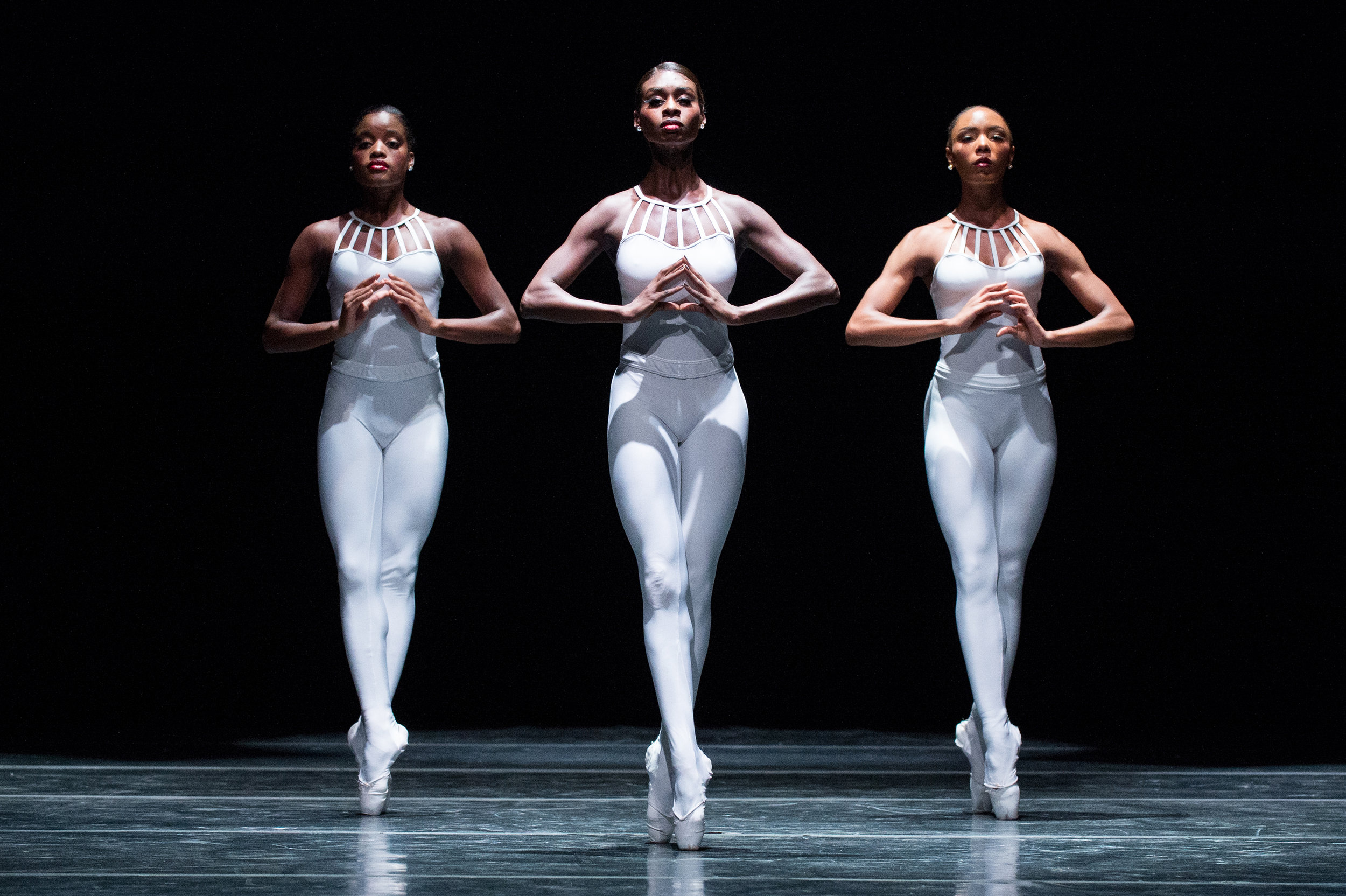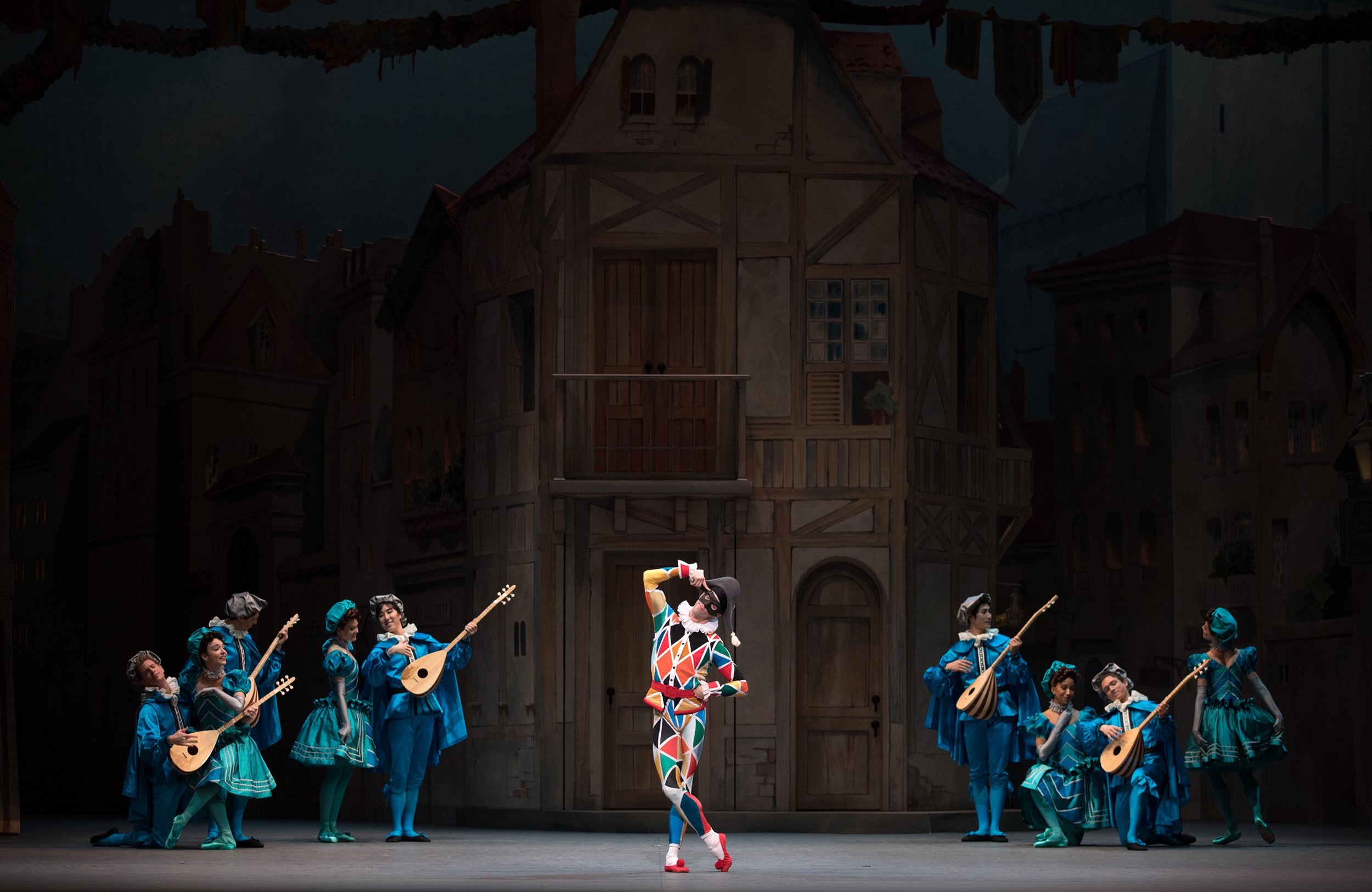Dance Theatre of Harlem

Dance Theatre of Harlem returned to D.C.’s Sidney Harman Hall on Friday night, courtesy of Washington Performing Arts and CityDance, with a trio of works presenting the company’s diverse talent and range in a program that only intermittently hit its marks.
An injury to one of the dancers this week forced a late change in the program, with Ulysses Dove’s Dancing on the Front Porch of Heaven replacing Elena Kunikova’s Divertimento and Helen Pickett’s When Love in the first of three acts. Dove’s work, created in 1993 as a response to the loss of 13 close friends and relatives, was premiered by DTH in 2013. Set to Arvo Pärt’s Cantus in Memory of Benjamin Britten, Heaven portrays severed connections, loss of communication, and a circle come undone. The highlight of this performance was an exquisite, erotic pas de deux by Dylan Santos and Choong Hoon Lee, who could have been friends, lovers, or both, and in the poignancy of its final moment, where the six dancers disengage from the circle and turn to a stance of forlorn isolation. The heart of the piece revolves around Ingrid Silva, Chyrstyn Fentroy, and Alison Stroming reaching out to an emotionally and physically distant Da’Von Doane, and his conflicted responses to their overtures. I found a hole in this spot where I would have expected the piece to emotionally resonate the most, with an inability to grasp what these women meant to this man. Were they lovers? A Mother? Friends? Sisters? We can surmise its likely some combination of all of these relationships without having it spelled out, but the opportunity for delivering an emotional wallop went unmet.
The second act was Francesca Harper’s System, which just received its premiere earlier this month in Chicago. In a recent interview with Auditorium Theatre, Harper described System as addressing
“the systemic issues that are in place in our world globally. It refers to traditional systems that hold us back and hold back our children. It refers to systems that are structured with a social imbalance and debilitate our people. It refers to systems that have been changed by one brave person speaking up. System is a work that explores our history and the lives of human beings courageous enough to challenge existing systems and redefine through empathy, humanity, and love.”
Making that impact was primarily left to Nick Hung’s lighting design, which created a sense of threat and peril when the ensemble was grouped together. Watching the dancers on stage, Harper’s lifts and pairings looked taxing and awkward. One might think that’s part of Harper’s intent, suggesting a community overburdened and tentatively engaging others with shaky results, but I didn’t see it that way. The Attacca Quartet provided live accompaniment off to side, performing the first two movements of John Adams’ String Quartet No. 1 and Fellow Traveler with sometimes ragged results.
The third act was a guaranteed crowd-pleaser, Robert Garland’s Return, a blending of ballet and street dance performed to the music of James Brown and Aretha Franklin. Created in 1999, Garland’s work leans more on the former than the latter, as if he was afraid to push to the mix too far into the blender, and maybe back then it was a prudent move. Now it looks like too timid an attempt, reflective of an era when the idea of a Super Bowl halftime show featuring Gloria Estefan and Stevie Wonder looked like a hip stab at diversity, but we’ve moved far past that time. Still, it has a delightful, comic sequence set to Aretha’s “Call Me” and the audience let loose an audible gasp of delight when Doane broke out an awe-inspiring breakdance move during Brown’s “Superbad.” But to make the make the piece really burn DTH needs to give it up and turn it loose just a little bit more.
The program repeats tonight.
****
Top photo: Dancing on the Front Porch of Heaven, courtesy of Dance Theatre of Harlem.
If you liked this, like A Beast in a Jungle on Facebook for more.





